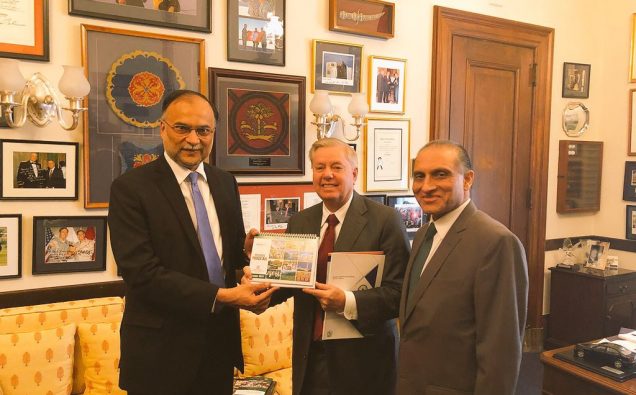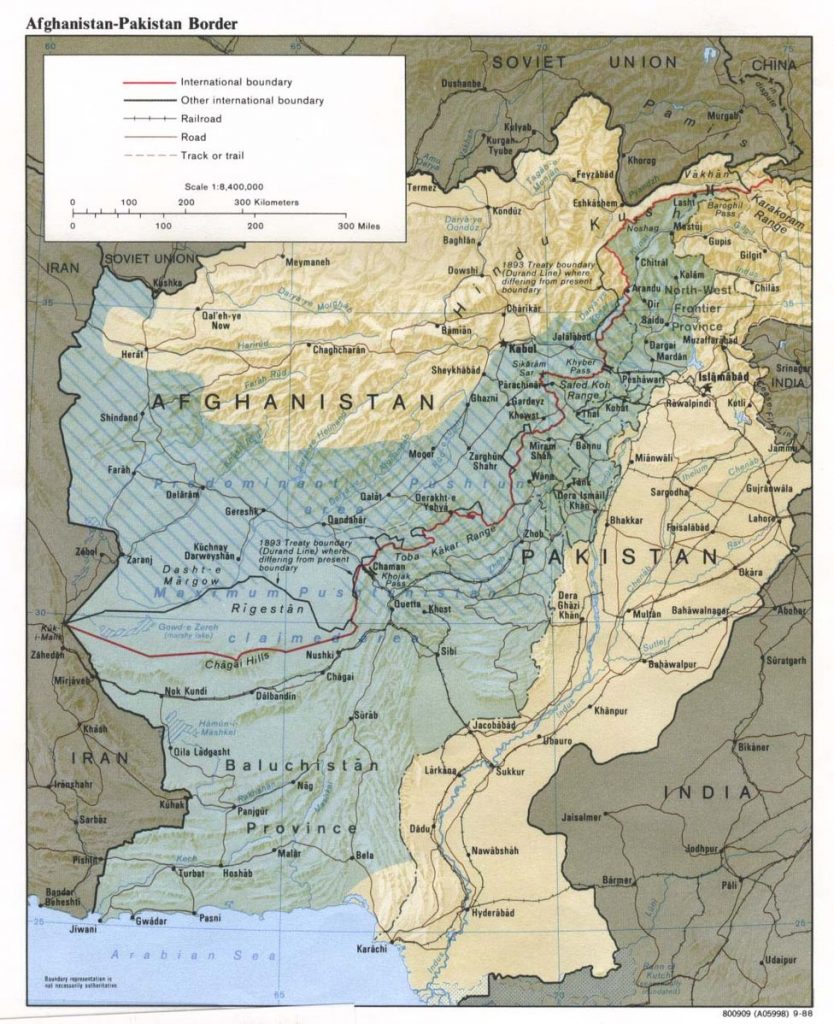
Pakistan’s economic and security gains were at risk from continued Afghan instability, and it is in the country’s interest to work with the United States to help bring peace to Afghanistan, a top Pakistani official said.
Interior Minister Ahsan Iqbal expressed these views during a meeting with U.S. Senator Lindsey Graham, a Republican from South Carolina, who serves on key Senate Committees including those overseeing Appropriations, Armed Services, Judiciary and Budget matters.
Iqbal said Islamabad wants to work with the United States to bring peace to its conflict-hit neighbor Afghanistan.
Senator Graham agreed with the Minister that sustained engagement between Pakistan and the United States remained critical to achieving peace in Afghanistan, according to the Pakistani embassy.
In recent years – since the U.S. scaled down its military presence in Afghanistan – Pakistan and Afghanistan have shown contrasting trends in the fight against terror.
In Pakistan, a series of military operations have taken out and expelled militants from their former strongholds in North Waziristan and other parts of tribal areas bordering Afghanistan with a marked improvement in overall security in the country.
In Afghanistan, the Afghan Taliban insurgency has grown more fierce, opium production is up, the ISIS has found a foothold, perpetrating a spate of bombings, and political wrangling in Kabul has stalled progress on several issues.
Both Pakistan and Afghanistan accuse each other of allowing militants to operate from their territories that stir up troubles in the two countries. Pakistan has accused Afghanistan of allowing the TTP leaders to hide on the Afghan soil and carry out attacks inside Afghanistan while Kabul says Pakistan has long allowed the Afghan Taliban to operate from its territory with immunity.
Islamabad does not completely rule out the possibility of cross-border movement of militants but also points out the huge Afghan refugee camps on its soil, saying the militants find young recruits there and also melt into the refugees – who have been living in Afghanistan since 1980s Soviet occupation of Afghanistan.
Meanwhile, during an interview with The Washington Times, Iqbal argued that the U.S. needs Pakistan if President Trump’s war plan for Afghanistan is to succeed.
He cautioned that bad blood between Washington and Islamabad risks triggering an era of instability across the region.
Ahsan Iqbal’s visit to Washington D.C. takes place in the backdrop of renewed tensions in the U.S.-Pakistan relationship – considered pivot to the goal of Afghan stability after years of war, insurgency and political dysfunction in the landlocked country.
The U.S.-Pakistan ties – already facing a stalemate – nosedived when President Trump accused Pakistan of deceit and lying in a New Year day tweet and give shelter to Afghan Taliban including the Haqqnis. The U.S. Administration followed up the Twitter diatribe with suspension of $ 900 million security aid to the South Asian country.
The Washington Times: https://www.washingtontimes.com/news/2018/feb/6/pakistan-critical-trump-afghanistan-war-plan-top-o/
Pakistan, which shares a long and porous border with Afghanistan, has denied accusations and says Washington needs to fix problems inside Afghanistan – now a theater of Taliban insurgency, ISIS terror and regional rivalries, particularly between nuclear-armed Pakistan and India.
According to the Times, Iqbal reiterated Islamabad’s wish is to have a relationship with Washington that could one day grow “beyond the prism of security.”
“Pakistan’s partnership is most critical for the success of the Trump administration’s strategy,” Iqbal said.
SOURCES CITED: The Washington Times, Pakistan Embassy
















